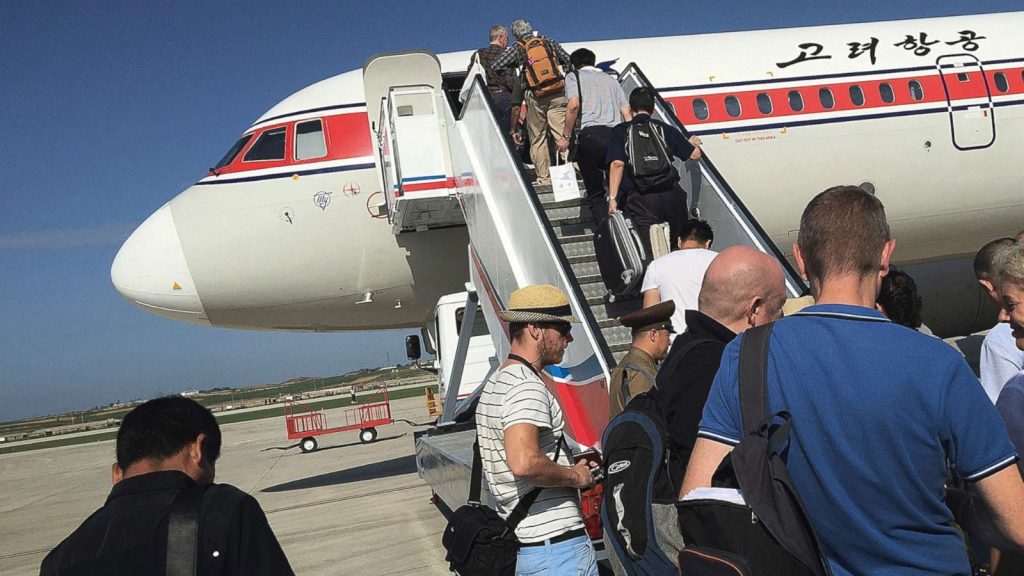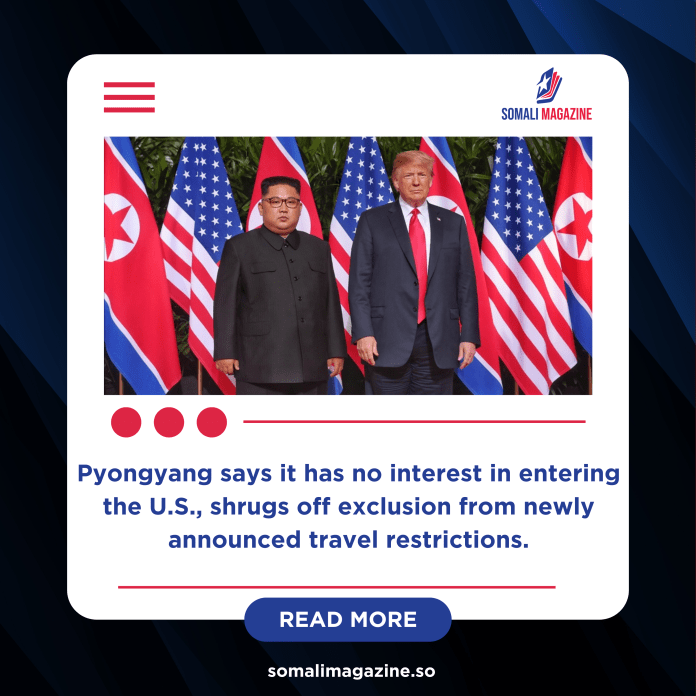Facebook Twitter (X) Instagram Somali Magazine - People's Magazine
North Korea has stated that it has no interest in being added to or removed from the United States’ list of countries banned from entering its borders. The statement was made on Tuesday through the country’s state-run news outlet, the Korean Central News Agency (KCNA).
This response came shortly after U.S. President Donald Trump issued a new travel ban targeting 12 countries. The ban, which took effect on Monday, includes countries such as Afghanistan, Myanmar, Haiti, Iran, Somalia, Sudan, and Yemen. North Korea was not included on this list.
Although North Korea was not banned, KCNA released a statement addressing the situation. It made it clear that Pyongyang has no interest in visiting or entering the United States, regardless of whether it is on the list or not. The country said it finds the matter unimportant and has no reason to be pleased or upset about its exclusion.
According to KCNA, some earlier reports in March had speculated that North Korea and Russia might also be added to the list. However, both countries were ultimately left out. North Korea believes that its exclusion might be part of a U.S. strategy, possibly a “carrot” approach, to encourage dialogue or better relations between the two nations.

Despite this, North Korea made it clear that it is not concerned about the intentions behind the decision. It said only the United States could explain whether the decision to leave North Korea off the list was for political or technical reasons. However, Pyongyang stressed that it simply doesn’t care about traveling to the U.S. and has no interest in being included or excluded from such a list.
The travel ban introduced by President Trump is being justified as a measure to protect the U.S. from possible threats linked to terrorism and national security. The U.S. government has said that the listed countries pose risks, and restricting travel from them is necessary for the safety of American citizens.
In the past, North Korea has had a tense relationship with the U.S., especially over its nuclear program and military activities. While there have been moments of attempted dialogue and diplomacy, tensions have remained high. Despite efforts by both countries in recent years to open communication, progress has often been slow or stalled.
KCNA’s statement reflects a broader sentiment from North Korea: that it does not want to appear as though it is waiting for approval or attention from the United States. Instead, it seeks to present itself as independent and uninterested in U.S. policies that do not directly affect it.
In conclusion, North Korea’s response to being left off the U.S. travel ban list highlights its ongoing disinterest in U.S. domestic policies regarding entry bans. While some may view its exclusion as a diplomatic move, North Korea has made it clear that it does not see the decision as important or worth reacting to.

